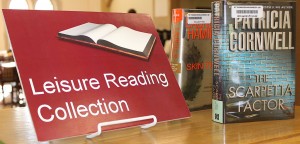College students are less empathetic than they used to be, according to a new study, but St. Thomas students and faculty are optimistic about how empathetic students are.
The study in the Personality and Social Psychology Review found that college students who filled out a questionnaire measuring empathy had 75 percent fewer empathetic responses than students in the ‘70s.
But some students, such as freshman Angela Duncan, don’t see the trend at St. Thomas. Duncan has volunteered with Sharing and Caring Hands and organized a benefit for Haiti and Chile at her high school, and she describes herself as “someone who is extremely empathetic.”
“If I see somebody crying, I almost always start crying,” Duncan said. “I have a habit of putting myself in other people’s positions emotionally.”
Junior Allie Graupmann went on a Students Today, Leaders Forever Pay It Forward Tour during spring break and is becoming part of the Big Brothers Big Sisters program. She said these will increase her empathy toward others.
But she also said it may be more difficult today to be empathetic.
“I think it’s harder to be empathetic because people are more self-absorbed,” Graupmann said.
Molly Bird, peer ministry coordinator, said St. Thomas’ new peer ministry group attracts students who have empathetic qualities.
“We frame our program as servant leaders guided by the Gospel, so inherently being a servant leader comes with the quality of empathy,” Bird said.
She added, “A lot of the students I work with are service-oriented, and I am amazed at how involved they are and how much they do for other people and be involved with the community.”
Empathy connected with fiction reading

One study published in the Journal of Personality found that adults who read fiction books are typically more empathetic. The study’s findings suggest the decline in empathy could be connected to the 50 percent decline during the last 10 years in the number of college students who read for pleasure.
Linda Hulbert, associate director of collection management and services for St. Thomas libraries, said she disagrees with the statistic.
“I don’t feel like there is that much less reading,” Hulbert said. “For journal content, when I came here almost nine years ago, this library had about 2,500 journal titles available. We now have over 40,000 titles and our interlibrary loan has gone up.”
But Hulbert also said many college students don’t have time to read for pleasure, and students only find that time on breaks.
Professor Lon Otto has been teaching English at St. Thomas since 1974, and he said he has not seen significant changes in empathy in the students he teaches.
“My broad impression is that I don’t see any particular difference,” he said. “In my 30 years, I haven’t experienced it. I think if there is a change in students as a whole, then some of that would have to do with less reading of sustained, challenging and imaginative writing.”
Otto said teaching literature helps students develop empathy. He said reading fiction allows students to stay out of “comfortable territory” and get viewpoints different from their own.
“[Students are] engaging not just information that is new but perspectives that are new, and I think literature and the arts have always done that,” Otto said.
While Duncan said work and school do not leave much time for reading, she can see how empathy can come from reading.
“I think my favorite book is “The Kite Runner,” and that is a great book for being empathetic,” she said. “I don’t know how many times I cried in that book. It’s heart-wrenching, imagining the kind of challenges the character faces.”
Kelsey Broadwell can be reached at broa3324@stthomas.edu.



